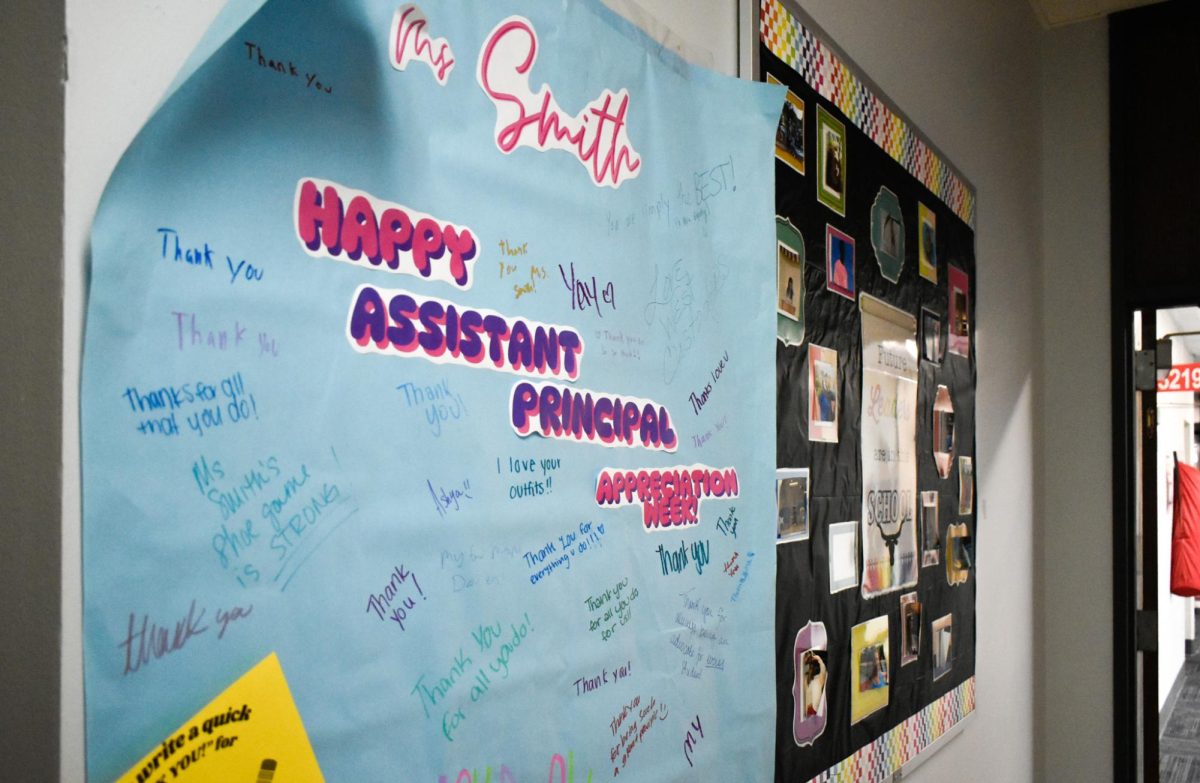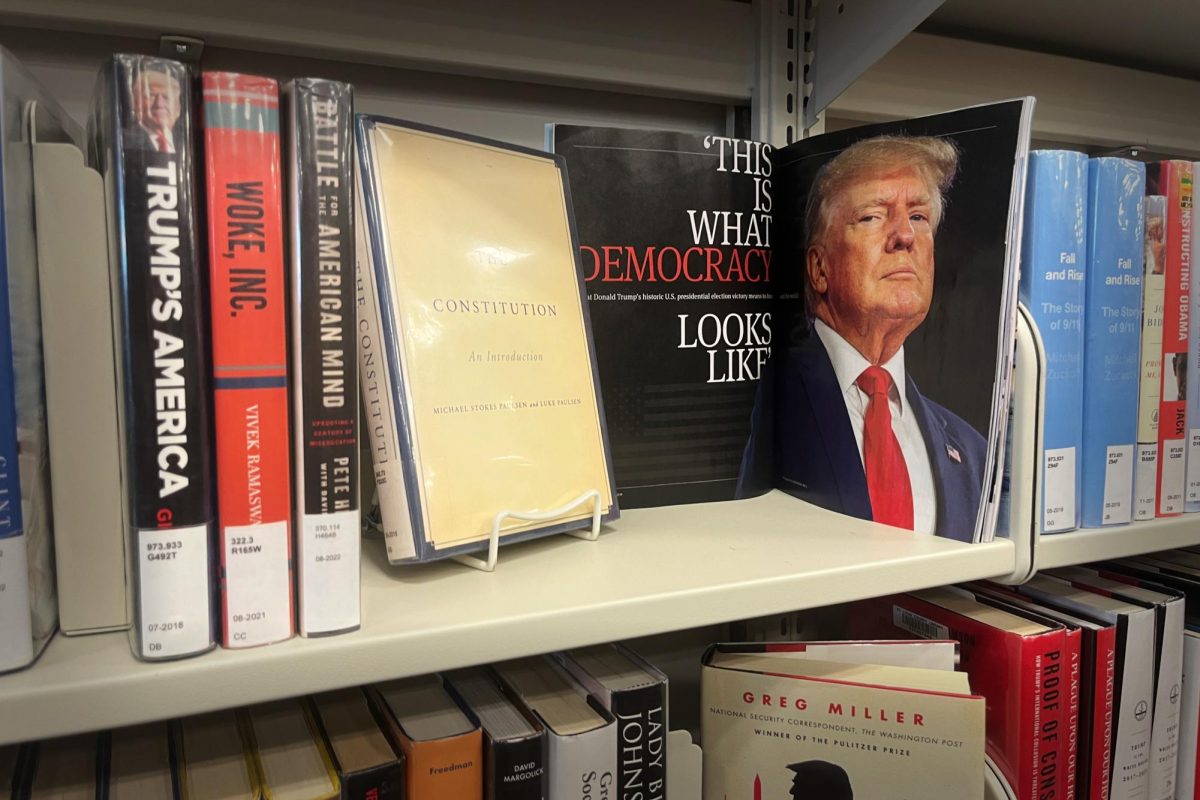Each November, staff members receive an email encouraging them to nominate a fellow staff member for the annual school-wide Teacher of the Year award. However, when students are the ones first-handedly experiencing instruction, isn’t it conducive that students’ opinions should count?
The process in previous years has entailed teachers receiving an email asking them to nominate which teacher they feel is most deserving along with a two to three sentence explanation. The names of the teachers that were nominated are then sent out in a poll format, and the teacher who receives the most votes becomes the Teacher of the Year.¬Ý
“We do have to have faith that teachers are selecting people based on sort of merit aside from popularity, [but] I think we should implement some type of rubric or system so the process is not so subjective,” Chemistry teacher Joel Anderson said. “The teachers that are here really early or staying really late, that are putting their own time into the lessons, [that] have a deep caring for the students—they will usually have my vote.”
Social studies teacher Amy Thornhill gives students a voice through her Teacher of the Year nomination. By taking nominations from students, not only does she nominate the teacher with the most votes for Teacher of the Year, but she also hands the nomination thank you notes out to teachers.
‚ÄúI was so surprised by the amount of names I got, so I decided to let those teachers know that students voted for them. It shows that what they do on a daily basis matters to someone,‚Äù Thornhill said. ‚ÄúIt makes me feel good about my vote because, in a way, it gives me evidence to back up my decision and not just randomly writing [a] name down when I don’t have any basis for it.‚Äù
National Honor Society (NHS) seniors gather once a year to discuss and designate one NHS Teacher of the Year, who is invited as a guest speaker at the NHS induction ceremony in April. Elected as a past NHS’s Teacher of the Year, Latin teacher Tom Herpel feels this honor means more than the faculty-nominated accolade.
“I feel that, in my opinion, I am most proud of what the students think of me as a teacher than what my colleagues do,” Herpel said. “It’s important to me because I spend my whole day with kids. To know that I made such a positive impact [on my students] and to know they believed I was in their corner was really meaningful to me. I do this job for them and not for any other reason.”
Although students spend their time in the classroom and therefore should have a voice, some teachers feel that they have a wider perspective of the staffs efforts. World History teacher and past Teacher of the Year Kristen Collins believes there are still other avenues students can take advantage of to appreciate teachers aside from the school-wide Teacher of the Year, such as the senior baccalaureate service of National Honor Society’s Teacher of the Year.
Taking this into consideration, faculty and students should get partial say in the nomination and voting process for Teacher of the Year.
While these other honors still mean a lot to the teachers who receive them, the Teacher of the Year award is a building-wide culmination of the effort teachers put into their jobs. When students are the direct recipients of these efforts, we are in the best position to judge their effectiveness. The award is, after all, called Teacher of the Year, not Colleague of the Year.¬Ý



![Writing a Teacher of the Year nomination note in World History teacher Amy Thornhill’s class, sophomore Kate Yates gets the opportunity to thank her teacher of choice, as well as possibly nominate them as Teacher of the Year. “[Teachers] spend so much time and effort to teach us and make sure we understand the content. We need a way to appreciate them so they know we are thankful for everything they do for us,” Yates said. “We should [have a say] because we spend the most time with [teachers]. We are the ones in their classes all day.”](https://pwestpathfinder.com/wp-content/uploads/2019/11/DSC_0053-900x600.jpg)
![Dressed up as the varsity girls’ tennis coach Katelyn Arenos, senior Kate Johnson and junior Mireya David hand out candy at West High’s annual trunk or treat event. This year, the trunk or treat was moved inside as a result of adverse weather. “As a senior, I care less about Halloween now. Teachers will bring their kids and families [to West’s Trunk or Treat], but there were fewer [this year] because they just thought it was canceled [due to the] rain. [With] Halloween, I think you care less the older you get,” Johnson said.](https://pwestpathfinder.com/wp-content/uploads/2025/10/DSC00892-1-1200x800.jpg)
![Leaning on the podium, superintendent Melissa Schneider speaks to Parkway journalism students during a press conference. Schneider joined Parkway in July after working in the Thompson School District in Colorado. “My plan [to bond with students] is to get things on my calendar as much as possible. For example, being in [classes] is very special to me. I am trying to be opportunistic [meeting] kids [and] being in [the school] buildings. I have all the sports schedules and the fine arts schedules on my calendar, so that when I'm available, I can get to them,” Schneider said.](https://pwestpathfinder.com/wp-content/uploads/2025/09/IMG_5425-1200x943.jpeg)


![Red, white and blue, the American flag holds the values of our democracy. The fight that we once endured has returned, as student journalists and senior correspondents across the country are losing their voices due to government control. “[Are] the White House and [the] government limiting free speech [and] freedom of the press? Yes [they are],” chief communications officer of the Parkway School District and former journalist Elisa Tomich said.](https://pwestpathfinder.com/wp-content/uploads/2025/03/Untitled-design-14.jpg)
![A board in the Parkway West counseling department displays pennants of selective universities. With a wide range of students interested in attending, it’s important that these schools have clear priorities when deciding who to admit. “[Washington University] had the major that I wanted, psychology, philosophy, neuroscience. That's a holistic study of the brain, and [WashU is] the only college in the world that offers that. That's the main reason I wanted to go; I got into that program,” senior Dima Layth said.](https://pwestpathfinder.com/wp-content/uploads/2025/02/Flag-1.png)

![Within the U.S., the busiest shopping period of the year is Cyber Week, the time from Thanksgiving through Black Friday and Cyber Monday. This year, shoppers spent $13.3 billion on Cyber Monday, which is a 7.3% year-over-year increase from 2023. “When I was younger, I would always be out with my mom getting Christmas gifts or just shopping in general. Now, as she has gotten older, I've noticed [that almost] every day, I'll open the front door and there's three packages that my mom has ordered. Part of that is she just doesn't always have the time to go to a store for 30 minutes to an hour, but the other part is when she gets bored, she has easy access to [shopping],” junior Grace Garetson said.](https://pwestpathfinder.com/wp-content/uploads/2024/12/DSC_0249.JPG-1200x801.jpg)

![Senior Sally Peters stands in the history hallway, contemplating her choices in the 2024 United States and Missouri elections on Nov. 5. As a member of Diplomacy Club, Peters has discussed key candidates and issues in contemporary American politics. “[As students], we're starting to become adults. We're realizing how much the policies that are enforced and the laws that make it through the House and Senate are starting to affect us. [Opportunities such as] AP [U.S.Government] and Diplomacy Club [make elections feel] a lot more real,” Diplomacy Club vice president and senior Nidhisha Pejathaya said.](https://pwestpathfinder.com/wp-content/uploads/2024/10/Flag-1-1.png)

